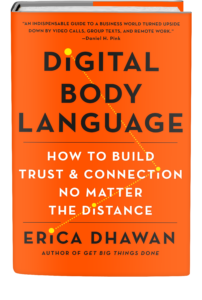Getting exhausted in your chair at work? Take a break! Here are 5 Key Ways to Take a break at work to rejuvenate, re-energize, and get your creative juices flowing.
Check it out below in this latest infographic from Learn Stuff:

Getting exhausted in your chair at work? Take a break! Here are 5 Key Ways to Take a break at work to rejuvenate, re-energize, and get your creative juices flowing.
Check it out below in this latest infographic from Learn Stuff:

Image courtesy of Marcus / FreeDigitalPhotos.net
It takes one cancellation, one schedule change, one forgotten reply, and only one disappointment to change others' perceptions of you as a leader. This is a bold statement, but it's true!
The world that we live in is fast-paced and crazy competitive. People do not have the time to spend thinking through why somebody disappointed them. Rather, all they can afford to process is how that disappointment felt. The reasons behind the experienced disappointment is irrelevant.
Take a look at the top 5 reasons why real leaders say NO:
1. The only way to avoid letting others down is to say no proactively. At first, this can seem unnatural as leaders typically enjoy their position of power. However, always saying "Yes, I can do that for you," is not sustainable. Often times, a definite no can lend itself to increased focus and clearer understanding for the larger group. This choice may not be understood at the time but will make sense to them later.
2. True leaders understand the weight of their words. If they commit to doing something, then they know it is important to do it. Whatever they said they were going to do is unimportant because the disappointment that people feel when something doesn’t get done can be irrationally understood. If you commit to doing something as menial as picking up the donuts, then you better be ready to make a Dunkin’ run, or somebody at work will feel disappointed.
3. Rationalization can be so strong that you reason your way out of doing something. You might feel certain that you absolutely cannot be disappointing anybody by not doing what you said you were going to do. This is a danger zone. You will never be able to fully know whether or not you've disappointed somebody. Most of the time you will never be alerted to the facts. The only way to avoid disappointing people is to do what you say you are going to do and leaders have a firm grasp on this reality.
4. By saying no in an open and honest manner, you can avoid the common pitfall of over-committing and under-delivering. Sure you’ve heard this saying before and know there is a level of truth to it. How often have you over-committed and as a result, have felt that you were forced to under-deliver? Remind yourself of this common advice and be transparent with others about your other commitments, so they understand why you cannot say yes. Temporary disappointment up front will subside quickly.
5. Planning one’s time wisely is essential to being successful as a leader in any forum. Once you have learned the art of saying no, it gets a whole lot easier to manage your day to day activities. A job doing is worth doing well. No better way to remember that than to take a look at where your time is being spent and make a contentious decision to scrap what you can. Your calendar will thank you later.
Sure, doing what you say you are going to do seems easy enough, except that it's not. The most difficult task real leaders face is knowing when and how to say no as it takes strength, thoughtfulness, and experience to do it. As you are working through the growing pains of saying no more often, remind yourself of the reasons why you are doing so, and you’ll be much more inclined to continue.
Guest Post by April Anderson. April is a researcher at Erica Dhawan Group and currently a MBA candidate at Baruch College in Organizational Psychology with a passion for women & leadership, social enterprise, and management development theory. Find April here.
Many companies are struggling to balance the freedom to use social media with how it might be affecting employee productivity.
According to Mashable, "You may think it's harmless to check a tweet or respond to a personal message on Facebook, but it will take you 23 minutes to get back on track. A social media interruption occurs every 10.5 minutes on average, and people waste 41% of that time on Facebook."
Want to learn how to manage social media overload? Check out the infographic below and 8 Ways to Avoid Being Overwhelmed for more!

Image courtesy of Ambro / FreeDigitalPhotos.net
Warren Buffet says that the number one key to success is communication skills and having conversations that show your curiousity, ambition, and expertise.
Communication skills increase your capital value by 50% in four areas: generosity, initiative, forward momentum, and transparency. Here are 4 ways to have great conversations:
1) Master the Hello and Goodbye: First, ask someone if they have a moment to speak. If they can't, thank them and create forward momentum. Instead of simply saying "Great speaking with you" or "I'll keep you posted on additional opportunities," establish yourself as professional and courteous and ask them "How can I follow up with you?"
2) Ask for Help (and sound smart while you do it): Be enthusiastic and ask for specific resources and guidance that will help you do your job better. When facing a challenge, ask, "do you have a template I should follow or people I should speak with?"
3) Get Feedback: Don't wait for the 6 month review to get feedback–ask your manager how he or she is feeling about your progress and what could be done differently. For a good script on asking for feedback, download my free Leadership Library below, with scripts, tools, and guidebooks.
4) Answer a Question (even if you aren't sure of the answer): There are plenty of ways to answer a question without lying or overtalking. Use your knowledge and experiences to add to the conversation. Someone else may build on your answer, giving you a chance to learn from another perspective.
What are other practices you use to have great conversations?

Image courtesy of David Castillo Dominici / FreeDigitalPhotos.net
1) Choose a life of impact over a social life. It's harder but you won't regret it. It’s a choice. They aren’t mutually exclusive of course, but sometimes we need to make a choice between the "important, long-term" mission and the "short, fun" event or initiative.
2) Take responsibility, not authority. There is a big difference between authority and responsibility. Authority is a form of control, responsibility is a form of influence.
3) Don't stop engaging in the arts. What brings us laughter, song, dance and joy are what brings us vitality, happiness and innovation. What is the next artistic challenge you will take on? Mine is Haitian Dance!
4) Create the optimal filters. Sometimes advice is the exact opposite of what you need to transform. Questions from a select few may do the trick.
5) Practice self-love. Be your own best friend. When we stop being hard on ourselves and trust our intentions, we create space for more love and gratitude around us.

Image courtesy of Stuart Miles / FreeDigitalPhotos.net
Here are 10 tips to become the most successful person you know.
1. When facing any change, understand what is at stake. Change gets made when we see what on the table matters and make real tradeoffs. We evaluate the tradeoffs rather than making rushed decisions.
2. Focus on deepening your insight, rather than gathering information. You can watch a lot of reality TV or read 3 thoughtful books –you choose. Deepening insight in a one hour phone call can be much more impactful than 10 hours of internet research. Figure out how to get the insight you really need.
3. Know Your Rhythm. Know what "rhythms" work best for you. Are you a morning or night person? When do you do your best work? Find ways to use your energy more effectively.
4. Be Politically Saavy. Recognize, understand and leverage the centers of influence and power within your environment. Always see big picture and integrate this knowledge into your decision-making.
5. Find Champions that will change your life. Build and maintain a rich network of mutually valued relationships that provide opportunities for mentorship, sponsorship and community as you advance.
6. Think of strategy as a hypothesis rather than a prediction. Think of strategy as a verb, not a noun. We never start with a plan and end with the same plan. When we dive in, we often discover new ways of thinking. Strategy is about about adapting and learning from real experiences.
7. Don't wait for a "perfect answer." Start with what you know and work your way to a solution.
8. Build an Game Plan in 3 month increments. Every few months, get committed to achieving new clearly defined outcomes and acting with purpose in order to produce results that are meaningful and measurable.
9. Find Sanctuaries that you use to decompress. Find places of rest to rejuvenate. For me it's the dance floor, home, and reading a book. What are yours?
10. Share your story. By telling others how you came to be who you are, you create space to connect with listeners, increase your visibility and move people to act. Never hold back from sharing your story with anyone you seek to build a relationship with.
I truly hope these 10 success tips have been valuable to you. And that I’ve been of service. Your success and impact in life is what we need most. Please protect it and make it happen.
Any other tips made you successful? Please share below!
If you enjoyed this article, get email updates (it's free) plus exclusive access to a private collection of leadership and career tools.
Copyright ©2024· Erica Dhawan, LLC. All Rights Reserved